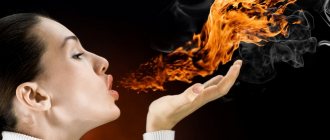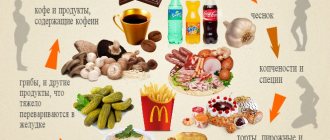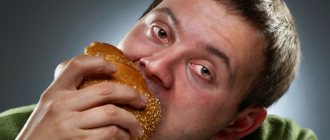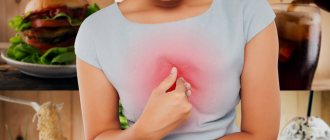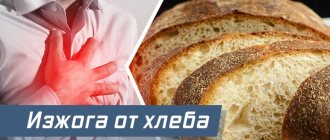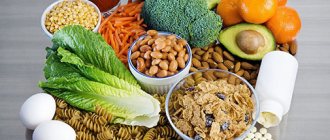Heartburn is common. It is difficult to find a person who is unfamiliar with it. However, the relevance and awareness of the problem varies significantly. The list of causes often boils down to overeating or consuming certain irritating foods, and treatment involves taking a magic pill that relieves symptoms. What causes heartburn? What alternative methods of struggle are there?
The mechanism of heartburn
The esophagus is a part of the digestive canal that is shaped like a tube that allows the bolus of food to move from the pharynx to the stomach. Normally, in the absence of swallowing movements, the place where it passes into the stomach is blocked by the lower esophageal valve, which acts as a valve. When food passes, the muscle ring reflexively opens and then closes again until a new portion arrives, preventing aggressive gastric juice from entering the esophagus. If the action of the described protective mechanism is disrupted, heartburn develops.
Features of treatment
How to get rid of heartburn? The first step is a consultation with a gastroenterologist. The doctor will conduct a diagnosis and determine the cause of heartburn. If a person is healthy and heartburn bothers him only in rare moments of overeating, then the doctor will recommend changing his diet and giving up heavy foods.
But what to do about heartburn if this symptom occurs too often? It is most likely that the person has a gastrointestinal disease that is causing the symptom. The doctor will make a diagnosis and begin treatment of the underlying pathology, which means the heartburn will go away. As a rule, the doctor prescribes medications for heartburn in accordance with the diagnosis that was made to the patient.
Why does heartburn occur after eating?
Often, heartburn after eating occurs due to excessive release of hydrochloric acid in the stomach. This occurs when eating fatty, fried, spicy, smoked foods and marinades. Citrus fruits, fruits with high acidity and tomatoes, which promote increased production of gastric juice, can also trigger a burning sensation.
Under the influence of caffeine, the esophageal valve relaxes, and the contents of the stomach enter the esophagus, causing an unpleasant burning sensation, and carbonated drinks contribute to an increase in intragastric pressure, which also leads to the development of heartburn.
In addition to the above, mention should be made of cheese, avocado, peppermint, nuts, milk chocolate, chips and confectionery.
Diagnosis of the causes of heartburn
Examination for heartburn at the Yauza Clinical Hospital includes the following steps:
Consultation with a gastroenterologist , who, if necessary, can prescribe additional studies, including those not related to gastrointestinal pathology, for example, electrocardiography.
Laboratory diagnostics , including clinical and biochemical blood tests, stool examination, tests for the presence of Helicobacter pylori, determination of acidity.
Modern endoscopic examinations (esophagogastroduodenoscopy, if necessary, colonoscopy), endosonography. For this purpose, hospital specialists use the modern endoscopic system PENTAX MEDICAL (Japan), which allows them to expand the range of possibilities, significantly speed up the examination and increase its accuracy.
Ultrasound diagnostics , including advanced combined approaches, for example, triplex scanning and combined examination with endoscopy.
X-ray, CT and MRI - diagnostics of the condition of the organs of the neck, chest, and abdominal cavity.
Elimination of the oncological threat - effective programs for identifying tumor formations using MRI - oncological search (complex MR diffusion). Expert level research, for example, genetic testing for predisposition to the development of tumors, including esophageal cancer. Blood tests for tumor markers.
Nutrition for heartburn
If you have heartburn, it is important to adhere to a certain diet and nutrition regimen. Nutrition should be balanced, mechanically, chemically and thermally gentle.
If you have heartburn, you should eat:
- vegetables,
- bananas,
- sweet apples,
- lean boiled or baked meat,
- cereals,
- low fat dairy products,
- low-fat first and second courses.
It is recommended to exclude from the diet or minimize consumption of:
- citrus fruits,
- sour fruits and their juices,
- garlic,
- Luke,
- tomatoes,
- fatty and fried foods,
- dairy products with a high percentage of fat,
- seasonings, sauces,
- cream confectionery,
- fatty first courses,
- chocolate,
- coffee,
- strong tea,
- carbonated and alcoholic drinks.
Prevention
If you discover heartburn, you first need to understand what food causes it and try to eliminate it from your diet. It is very important not to overeat. To do this, you need to give up large portions, eat more often, but less, do not overeat before bed, and limit your coffee consumption. Pregnant women should consult a doctor to choose a safe drug to relieve symptoms and be sure to follow a diet. If heartburn occurs frequently (daily, weekly, after physical work or night shifts) or is accompanied by belching and abdominal pain, you should definitely consult a doctor.
How to get rid of heartburn?
To refuse from bad habits.
Smoking and alcohol abuse have a negative impact on all parts of the digestive tract without exception, but the lower esophageal valve is the first to suffer, which leads to a constant burning sensation behind the sternum. Giving up bad habits after some time completely normalizes the condition and also prevents the development of more serious and dangerous complications.
Normalize your daily routine.
People suffering from heartburn after eating are advised to normalize their daily routine. Instead of three meals a day, you should switch to fractional, 4-6 meals a day. It is advisable to eat food silently and slowly, in order to avoid swallowing excess air and increasing intragastric pressure. You should have dinner 3 hours before bedtime. Evening walks in the fresh air are very useful, they help food digest as much as possible and help normalize acidity levels. At the same time, lying down after eating is very harmful, since in a horizontal position the contents of the stomach more easily penetrate the esophagus.
However, it should be understood that constant heartburn is not a disease, but a symptom. Therefore, to completely eliminate it, you should seek help from a doctor who will diagnose and treat the disease that caused this condition.
Heartburn and reflux disease. The essence of the problem.
Heartburn and reflux disease. The essence of the problem.
The American Gastroenterological Association has prepared a number of brochures with recommendations for patients regarding problems with the digestive tract. This brochure is about heartburn and gastroesophageal reflux disease.
The main thing about heartburn
- Heartburn is the most common symptom of gastroesophageal reflux disease (GERD).
- Heartburn can occur if acid or other stomach contents enter the esophagus.
- Although heartburn is rarely life-threatening, it can significantly reduce the quality of your life. Heartburn affects the patient's daily activities, sleep and diet.
- Heartburn can often be relieved by making behavioral changes, quitting certain habits, or taking over-the-counter medications, but if symptoms persist or become increasingly bothersome, you may need to see a gastroenterologist for further testing, including to rule out more serious conditions.
GERD?
Between the esophagus and the stomach is the lower esophageal sphincter, formed by muscles.
When swallowing occurs, this sphincter opens, allowing food to pass into the stomach. After a swallow, to prevent the return of food lumps and the flow of gastric juice into the esophagus, this sphincter quickly closes. When the lower esophageal sphincter relaxes uncoordinatedly or very weakly, acidic stomach contents can back up into the esophagus. This reflux is called gastroesophageal (gastroesophageal) reflux and often causes heartburn, that is, a burning sensation behind the breastbone, where the ribs meet. In addition to heartburn, symptoms of GERD may include: persistent sore throat, hoarseness, chronic cough, shortness of breath similar to heart-related chest pain, and a feeling of a lump in the throat. If acidic contents from the stomach regularly enter the esophagus, GERD can become chronic. The occurrence and severity of gastroesophageal reflux and heartburn are influenced by various factors, including:
- the ability of the lower esophageal sphincter muscles to open and close correctly
- composition and volume of gastric juice entering the esophagus during reflux
- quality and speed of cleansing of the esophagus from harmful substances that have reached its mucosa
- neutralizing effect of saliva and others.
People experience heartburn and GERD in different ways. Heartburn usually manifests itself as a burning sensation that begins behind the breastbone and travels up to the throat. Often there is a feeling that swallowed food is returning back to the mouth, which is accompanied by a sour or bitter taste. Heartburn usually occurs after eating.
Symptoms
Symptoms of heartburn may include:
- burning in the chest area
- burning behind the sternum and manifestations of reflux, which are aggravated if the patient lies down or bends over.
Sometimes, despite the presence of refluxes that damage the mucous membrane of the esophagus, there are no symptoms of the harmful effects of acid on the esophagus.
How common is heartburn?
Although heartburn is common, it is rarely life-threatening. However, heartburn can seriously limit daily activities and work efficiency. With a proper understanding of the causes of heartburn and targeted treatment, most patients achieve improvement.
Does a hiatal hernia cause heartburn?
| Lower esophageal sphincter (LES) and hiatal hernia |
A hiatal hernia allows the stomach to slide into the chest cavity through a hole in the diaphragm.
Although a hiatal hernia does not cause heartburn, it does predispose you to heartburn. A hiatal hernia can cause the esophagus to shorten, which can lead to chronic heartburn. Hiatal hernia can occur in people of any age and often occurs in otherwise healthy people aged 50 years and older. Note: Any chest pain or difficulty swallowing requires immediate medical attention.
All possible causes of such pain should be analyzed .
How to get rid of heartburn?
The recommendations listed below are not universal. Patients should keep a diary so they can be helped to better manage their symptoms. Each of the items listed below contributes to the development of symptoms and should not be avoided until it has been proven that they do not aggravate the symptoms in a given patient. Discuss all of these recommendations with your doctor.
- Avoid foods, drinks and medications that interfere with the action of the lower esophageal sphincter or irritate the lining of the esophagus, such as fried or fatty foods
- chocolate
- mint
- alcohol
- coffee (decaf coffee too)
- carbonated drinks
- ketchup and mustard
- vinegar
- tomato sauce
- citrus fruits and their juices
- aspirin, anti-inflammatory and pain relievers, except acetaminophen.
- Reduce the portion sizes of food you eat. Don't overeat!
- Eat food no later than 2-3 hours before going to bed.
- Raise the head of the bed by 10–15 cm, using, for example, telephone books.
- If you are overweight, lose weight.
- Avoid situations that may increase pressure on the abdominal cavity, as this can provoke reflux from the stomach into the esophagus. Try simple things like avoiding tight clothing or body-hugging outerwear. Less obvious causes of reflux include squats, leg lifts and abdominal exercises.
- Quit smoking, as cigarettes reduce the ability of the lower esophageal sphincter to work properly.
If heartburn does not go away
| Serova O.A. (YarOKB) monitors pH using the Gastroscan-24 device |
| Device and probe for impedance pH-metry “Gastroscan-IAM” |
| Storonova O.A. ( MMA named after I.M. Sechenov) for processing the results of esophageal manometry obtained on the Gastroscan-D |
To relieve infrequent heartburn, over-the-counter medications may be helpful if taken strictly as directed.
If long-term and frequent use of over-the-counter medications becomes necessary, or if they do not completely alleviate the patient's condition, a gastroenterologist should be consulted. Patients with severe heartburn or heartburn that does not improve despite the above measures may need a more complete evaluation. Various tests and diagnostic procedures are currently used to determine the causes of heartburn and decide on further treatment.
Endoscopy
- a procedure during which a thin flexible tube with a video camera and a light at the end is inserted into the patient's esophagus. Through this tube (endoscope), the doctor can see and evaluate the condition of the esophageal mucosa.
Biopsy
- taking a small piece of the esophageal mucosa for examination.
Esophageal manometry
- a procedure for measuring pressure in the esophagus, necessary to determine critically low pressure in the lower esophageal sphincter and detect other disorders in the functioning of the esophageal muscles.
Impedancemetry
- a procedure in which the speed of fluid movement in different parts of the esophagus is measured. When used in conjunction with pH monitoring, impedance monitoring provides the clinician with a more complete picture of reflux in the esophagus, identifying both acidic and non-acidic reflux episodes. A combined test (pH + impedance testing) is also recommended for patients refractory to proton pump inhibitor therapy with persistent typical symptoms of GERD, chronic cough, unexplained excessive belching and regurgitation.
Acidity monitoring ()
— For difficult-to-diagnose patients, doctors can choose one of two methods for measuring acidity (pH) in the esophagus. In the first option, a thin tube - a pH probe - is inserted into the patient's esophagus through the nose, the other end is connected to a small recording device that the patient wears on a belt. With their help, reflux events during normal daily activities and the patient’s normal diet are recorded over a 24-hour period.
In the second method, instead of a tube (pH probe), a small wireless pH sensor is used, which is attached to the esophageal mucosa. It transmits the collected data to a receiver worn on the patient's belt for 24 to 48 hours. This is also where the patient carries out normal daily activities. After some time, the disposable sensor detaches from the esophageal mucosa and exits naturally from the digestive tract.
Surgery.
A small number of patients with heartburn may require surgery due to severe reflux and poor results of medical treatment. To reduce the number of refluxes, a fundoplication operation is performed. Patients who do not want to take medications necessary to relieve heartburn are also candidates for surgery.
Medicines to relieve heartburn
| Various antacids | |
| Foaming agent Gaviscon and H2 blocker Quamatel (famotidine ) | |
| Prescription Ultop in Russia and over-the-counter in the USA Prilosec OTC (both PPI omeprazole) | |
| Prokinetics Ganaton (itopride) and Motilium (domperidone) | |
There are a number of over-the-counter and prescription medications available to help relieve heartburn. These drugs inhibit acid production or help the stomach muscles empty it. Many of these drugs may be effective in combination with each other due to their different mechanisms of functioning. To find out which medicine (or medicines) is best for a particular patient, a consultation with a gastroenterologist is necessary.
| Antacids. Often the first medications recommended to relieve heartburn and other symptoms of GERD are antacids, which neutralize stomach acid. They are sold without a prescription. Patients taking antacids may experience a variety of side effects, including diarrhea and constipation. Some antacids may be an additional source of calcium. |
| Foaming agents . These over-the-counter medications work by creating a foamy barrier at the top of the stomach that prevents reflux. |
| H2 blockers . H2 blockers are available in both over-the-counter and prescription versions, and they reduce stomach acid secretion and provide short-term symptom relief. H2 blockers are effective in about half of patients with GERD symptoms. |
| Proton pump inhibitors (PPIs). These medications (formerly all prescription drugs, but now some are available over-the-counter) are more effective than H2 blockers and can relieve symptoms and heal the esophageal lining in almost all patients with GERD. |
| Prokinetics . These prescription medications help strengthen the lower esophageal sphincter and increase the rate at which the stomach emptys. However, their side effects, including fatigue, drowsiness, depression, anxiety and problems with physical activity, may limit their use. |
Treatment for GERD does not improve lower esophageal sphincter function.
If acid suppression treatment is stopped, GERD symptoms are likely to return. Even if this does not happen, the complications listed above may occur asymptomatically, which makes it extremely important to consult a gastroenterologist before stopping any kind of treatment. Translator's Notes. 1. In Russia, the list of prescription or over-the-counter drugs is different than in the United States. However, at the time of translation of this brochure (2012), it was not a problem to buy an official prescription drug from the drugs listed above without a prescription in Russia. 2. In the United States and some other countries, there are a number of drugs sold with a prescription and at the same time without a prescription (Over-the-Counter; OTC). At the same time, the over-the-counter version differs from the prescription version only in the reduced content of the active substance. 3. Illustrations added during translation.
We also recommend the following articles: “British Society of Gastroenterology's advice for heartburn and gastroesophageal reflux”, “Is it just minor heartburn or something more serious?”, “Advice from the American College of Gastroenterology for problems with swallowing and heartburn”, “A conversation with Dr Donald Castell” What is GERD?”, “Gastroesophageal reflux disease (GERD) in questions and answers” and “Heartburn”, “Not a joke, but a stomach complaint!” Back to section
Feeling of heartburn in the throat
This phenomenon occurs due to the ingress of gastric juices onto the mucous membrane of the esophagus due to impaired motility of the duodenum, stomach or esophagus, when its lower sphincter does not work adequately.
The pH of the walls of the esophagus is at a neutral level, and the acid contained in the gastric juice irritates and burns the esophageal mucosa.
Acid provokes inflammatory processes
which can lead to erosions and ulcers of the esophagus. The result can be bleeding, and in some severe cases, even rupture of the walls of the esophagus, which pose a threat to life.
Scarring of ulcers leads to a narrowing of the esophagus, in which a person feels an impassable lump in the throat and experiences difficulty swallowing food. This condition not only brings discomfort to life, but can also become an indication for complex surgery and increases the risk of developing esophageal cancer.
Feelings of heartburn in the throat can also be experienced by completely healthy people with various dietary disorders. However, attacks in such cases occur extremely rarely.
Pregnant women, as mentioned above, also suffer from heartburn very often. Attacks of heartburn are typical for the second half of pregnancy, when the already large fetus puts pressure on the esophageal sphincter, opening it slightly.



